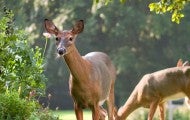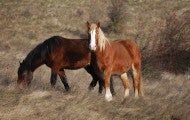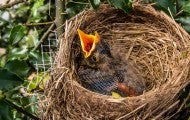Showing 15 of 35 results
By some human standards, my pond is a hot mess. Underneath and around the water lilies are fallen leaves, branches and other debris of decomposing plants. Along the edges, sea oats, sedges and swamp sunflowers hug the rocks. But if humans are picky in their desire for orderliness, frogs are just as...
In March, as people struggled to understand how the precursor of the virus that causes COVID-19 emerged from horseshoe bats in southern China and reached humans in the central city of Wuhan, Humane Society International policy specialist Peter Li fielded one question again and again: “Why do Chinese...










